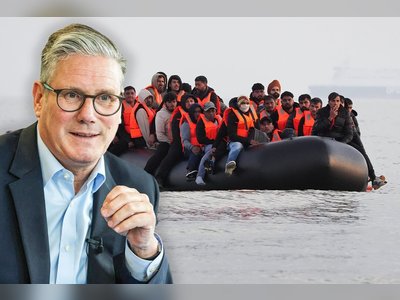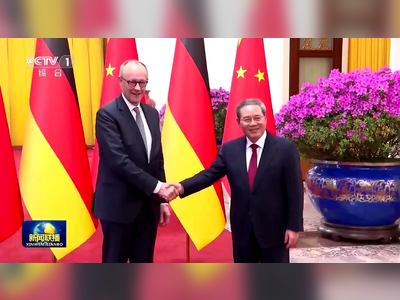Germany Implements Stricter Border Controls for Migrants
Interior Minister Alexander Dobrindt announces immediate measures to turn away migrants at the border, marking a significant shift in immigration policy.
Germany's newly appointed Interior Minister, Alexander Dobrindt, has declared that migrants will be turned away at the country's borders, a decision that reflects a substantial reversal of previous immigration policies.
Dobrindt made this announcement during a press conference on Wednesday, emphasizing that this directive is aligned with Chancellor Friedrich Merz's campaign promises.
Under the new policy, border police have been instructed to reject migrants immediately at entry points.
However, exceptions will be made for children, pregnant women, and other vulnerable individuals, as confirmed by Dobrindt.
This policy change signifies a departure from the approach adopted by former Chancellor Angela Merkel in 2015, when she opted not to turn away migrants at the border.
Instead, under her administration, local authorities were tasked with processing all asylum seekers who arrived in Germany.
Dobrindt's current stance seeks to re-establish more stringent control over migration into Germany.
Heiko Teggatz, the Chair of the Federal Police Union, endorsed the policy by stating that individuals without identification documents, which includes those seeking asylum, would be denied entry into the country.
Dobrindt further specified that while Germany would enhance border controls, the initiative would not involve closing borders entirely.
He noted ongoing discussions with neighboring countries to ensure that the new measures do not impose undue burdens on them.
"We want to tighten up the European asylum system," he remarked.
To accommodate the increased responsibilities at the borders, the German government plans to bolster the border police force.
Dobrindt announced plans to deploy an additional 3,000 federal police officers to assist in border control operations.
The number of border police will be doubled, and mobile control units are expected to be deployed as part of the improved monitoring measures.
The Minister framed this shift as a significant message to European partners, declaring, "A clear signal to Europe that politics in Germany has changed."
Dobrindt made this announcement during a press conference on Wednesday, emphasizing that this directive is aligned with Chancellor Friedrich Merz's campaign promises.
Under the new policy, border police have been instructed to reject migrants immediately at entry points.
However, exceptions will be made for children, pregnant women, and other vulnerable individuals, as confirmed by Dobrindt.
This policy change signifies a departure from the approach adopted by former Chancellor Angela Merkel in 2015, when she opted not to turn away migrants at the border.
Instead, under her administration, local authorities were tasked with processing all asylum seekers who arrived in Germany.
Dobrindt's current stance seeks to re-establish more stringent control over migration into Germany.
Heiko Teggatz, the Chair of the Federal Police Union, endorsed the policy by stating that individuals without identification documents, which includes those seeking asylum, would be denied entry into the country.
Dobrindt further specified that while Germany would enhance border controls, the initiative would not involve closing borders entirely.
He noted ongoing discussions with neighboring countries to ensure that the new measures do not impose undue burdens on them.
"We want to tighten up the European asylum system," he remarked.
To accommodate the increased responsibilities at the borders, the German government plans to bolster the border police force.
Dobrindt announced plans to deploy an additional 3,000 federal police officers to assist in border control operations.
The number of border police will be doubled, and mobile control units are expected to be deployed as part of the improved monitoring measures.
The Minister framed this shift as a significant message to European partners, declaring, "A clear signal to Europe that politics in Germany has changed."
AI Disclaimer: An advanced artificial intelligence (AI) system generated the content of this page on its own. This innovative technology conducts extensive research from a variety of reliable sources, performs rigorous fact-checking and verification, cleans up and balances biased or manipulated content, and presents a minimal factual summary that is just enough yet essential for you to function as an informed and educated citizen. Please keep in mind, however, that this system is an evolving technology, and as a result, the article may contain accidental inaccuracies or errors. We urge you to help us improve our site by reporting any inaccuracies you find using the "Contact Us" link at the bottom of this page. Your helpful feedback helps us improve our system and deliver more precise content. When you find an article of interest here, please look for the full and extensive coverage of this topic in traditional news sources, as they are written by professional journalists that we try to support, not replace. We appreciate your understanding and assistance.











